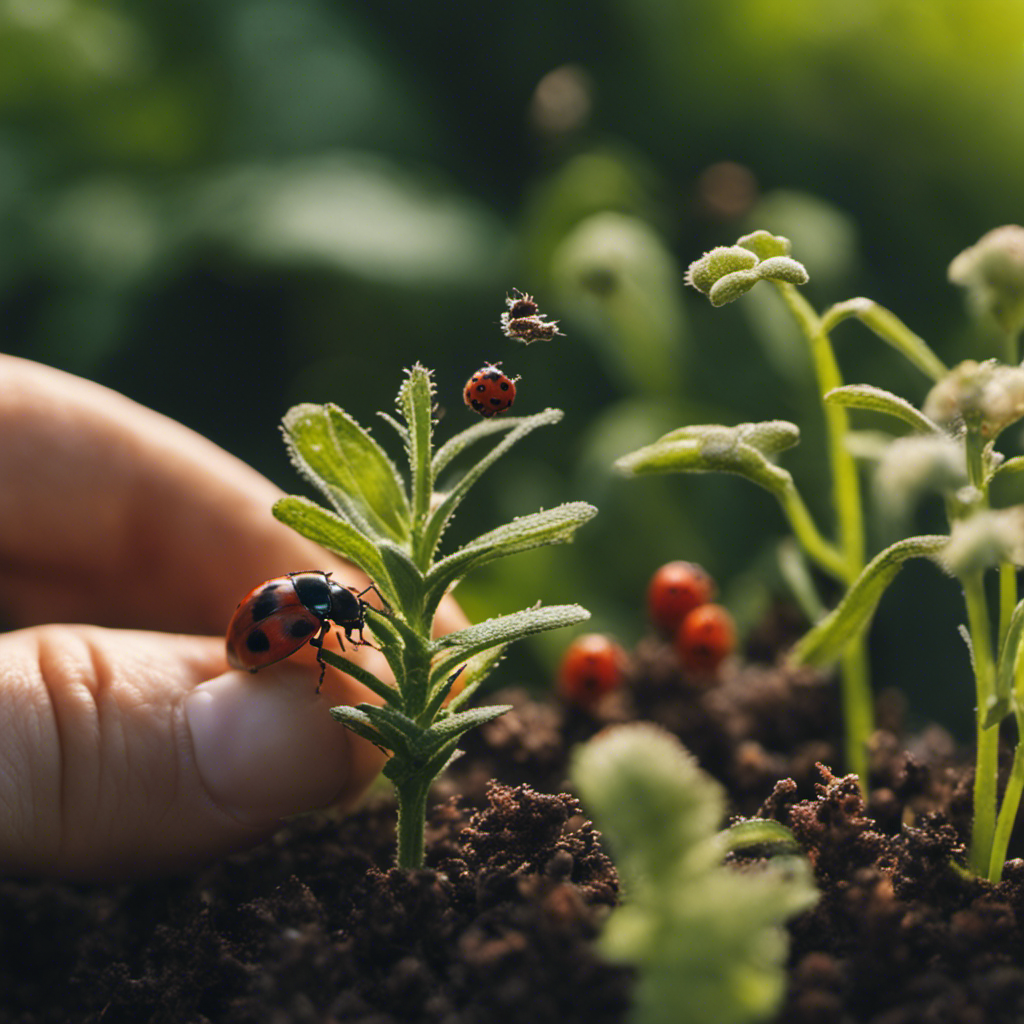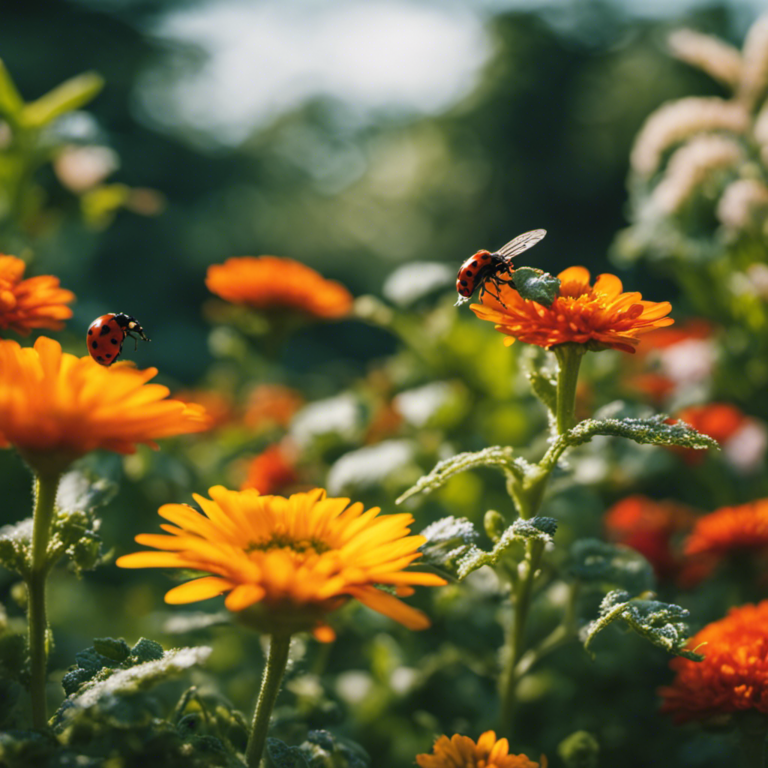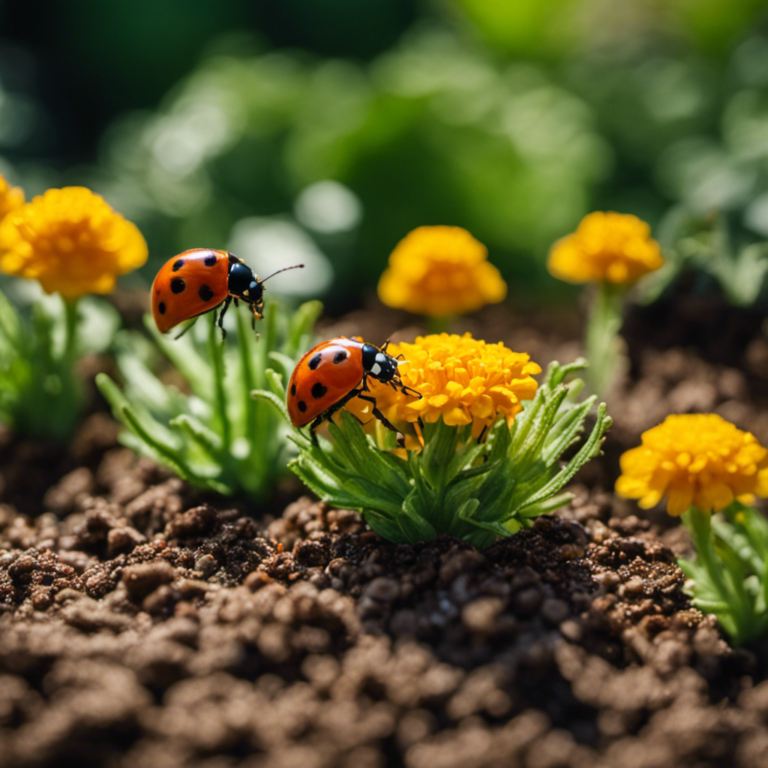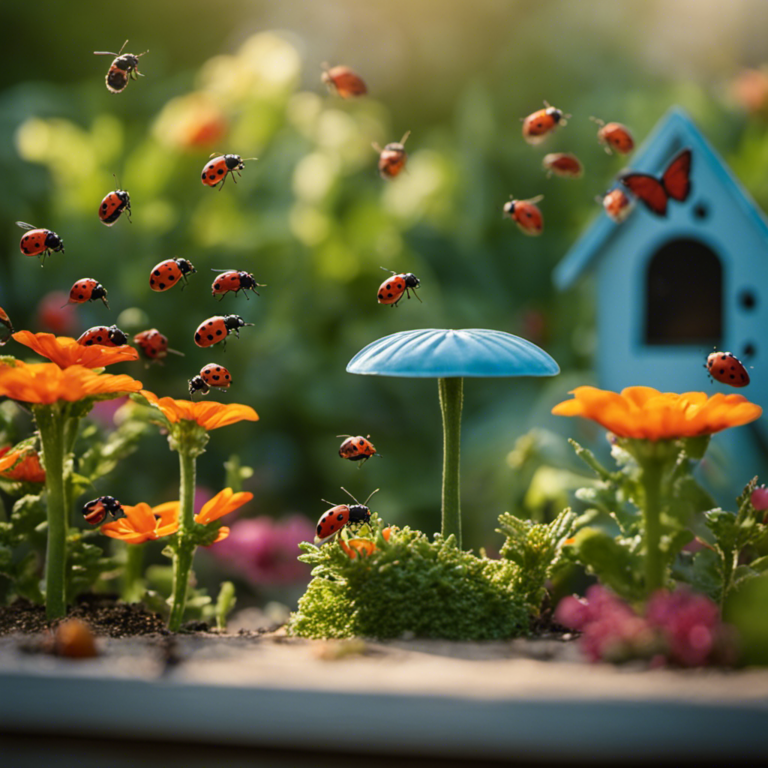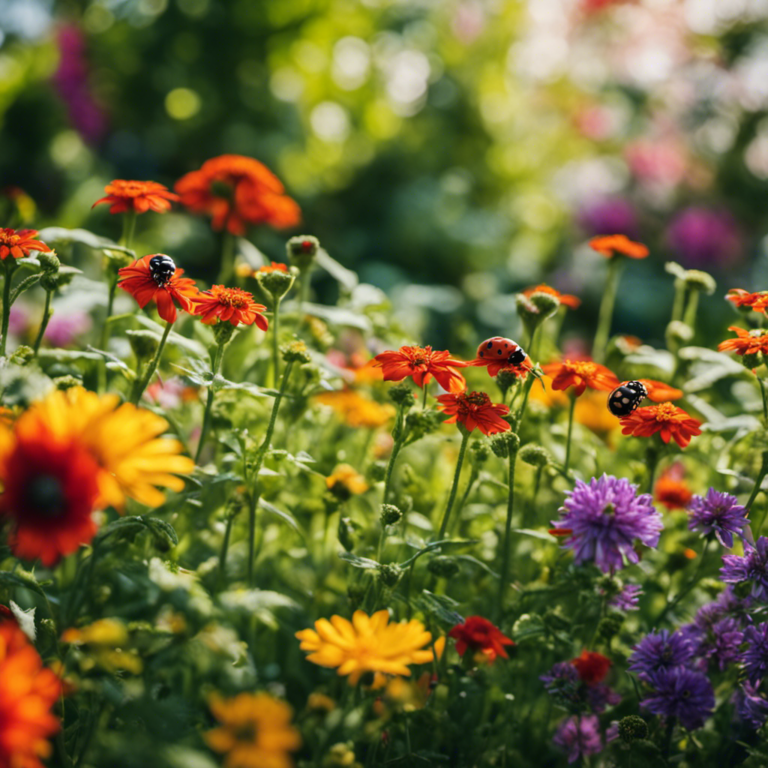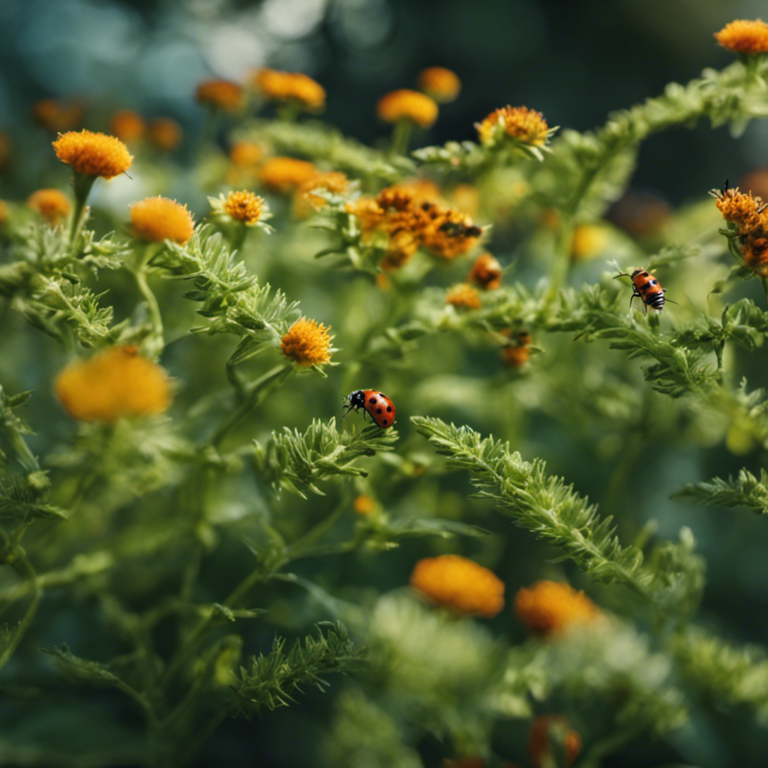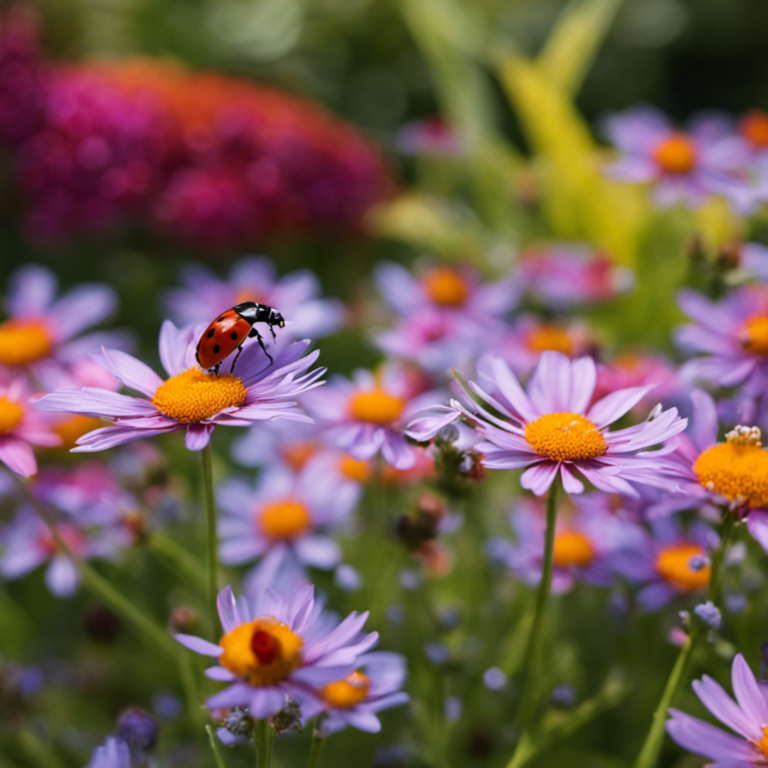Are pests causing problems in your herb garden? Don’t worry! In this article, we have you covered with effective pest control strategies that will keep your herbs healthy and thriving.
From using essential oils and homemade sprays to practicing companion planting and attracting beneficial insects, we will guide you step by step to ensure your herbs are protected.
Bid farewell to annoying intruders and welcome a bountiful harvest. Get ready to harness the power of nature and reclaim your herb garden!
Key Takeaways
In the world of gardening, effectively dealing with pests can be achieved by harnessing the power of nature. Instead of relying on harmful chemicals, there are natural methods that can protect our precious herbs from harm. By using essential oils, practicing companion planting, and making homemade sprays, we can create a safe and healthy environment for our herbs.
One effective strategy is to create physical barriers. This can involve using nets or fences to prevent pests from accessing the herbs. By blocking their entry, we can significantly reduce the risk of damage to our plants.
Another beneficial approach is to attract beneficial insects. These insects, such as ladybugs and lacewings, feed on pests and help control their population naturally. Planting flowers that attract these beneficial insects can be a simple yet effective way to promote a balanced ecosystem in our herb garden.
It is important to understand that pest control is an ongoing process. Regular monitoring of our plants is essential to catch any pest infestations early on. By promptly addressing any issues, we can prevent the pests from causing significant damage.
By adopting these authentic pest control strategies, we can ensure that our herb garden thrives in health and abundance. Remember, a natural approach not only protects our herbs but also promotes a sustainable and environmentally friendly gardening practice. As the saying goes, "Nature knows best."
Essential Oils for Herb Pest Control
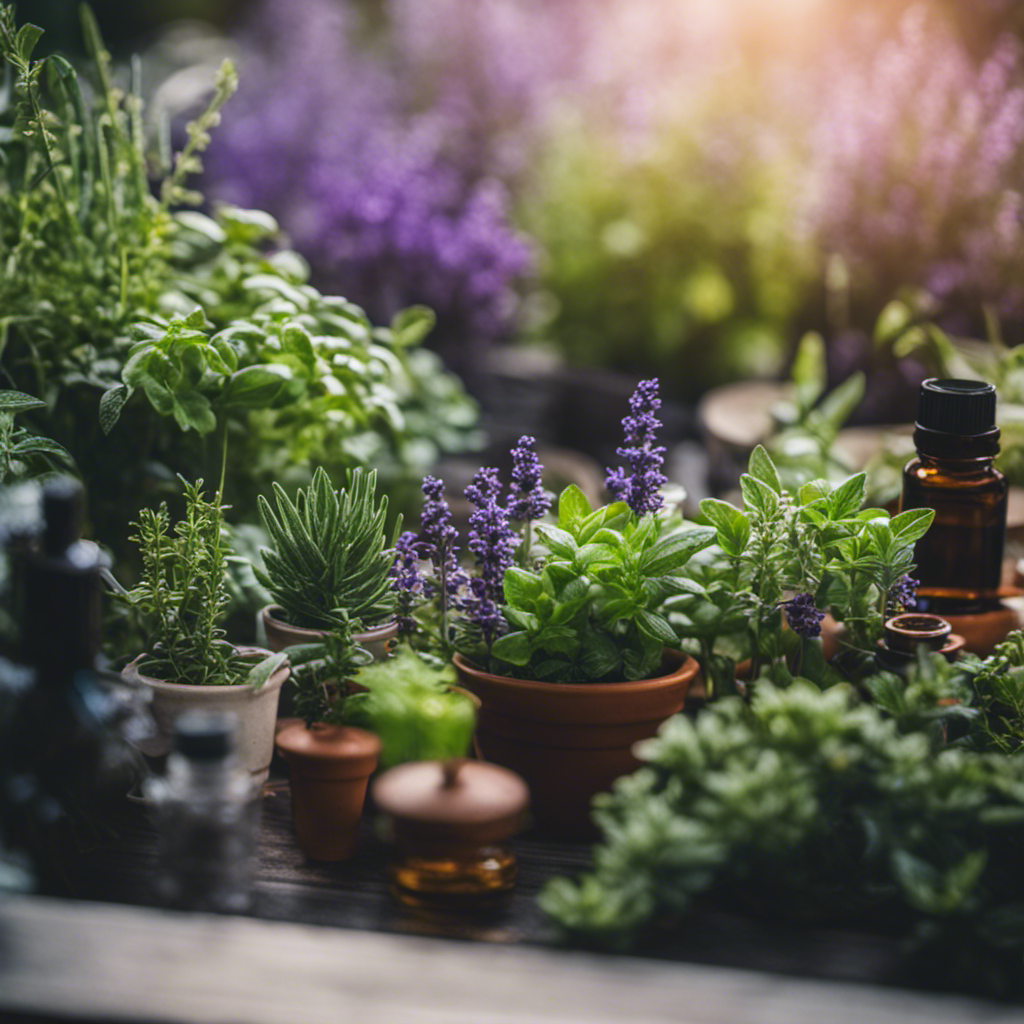
Using essential oils is a natural and safe way to repel pests from your herb garden. Unlike chemical pesticides, essential oils are a great alternative that won’t harm you or your plants. Prevention is key when it comes to pest control, so consider planting pest-resistant herbs like lavender, rosemary, and mint to minimize the risk of infestations.
However, if pests do manage to find their way into your garden, essential oils can be your solution. Peppermint oil, for instance, is known to repel ants, aphids, and spiders. To use it, dilute a few drops of peppermint oil in water and spray it on your plants. Not only will this keep pests away, but it will also leave your herbs smelling fresh and aromatic. It’s a win-win situation for you and your plants!
Companion Planting for Natural Pest Deterrence
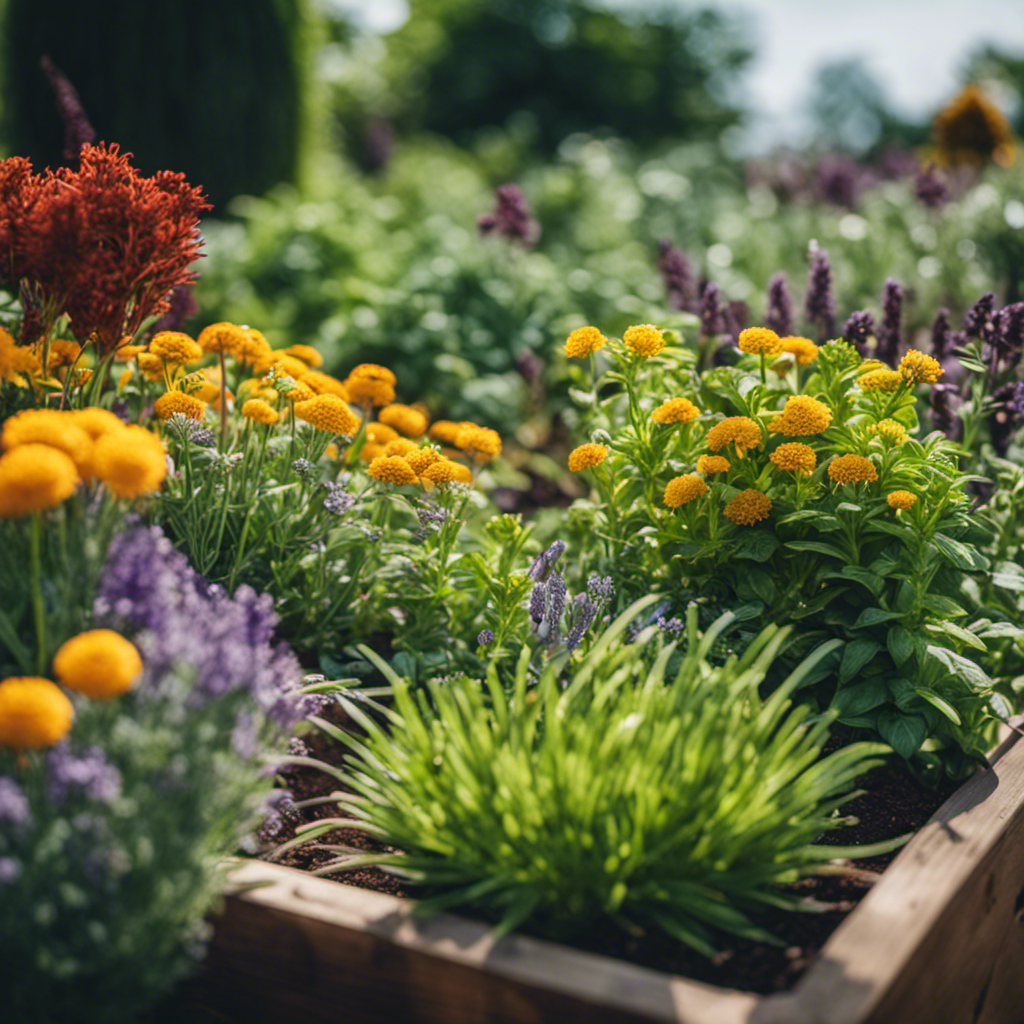
Companion Planting for Natural Pest Control
To naturally deter pests from your herb garden, consider using companion planting techniques. Companion planting involves strategically placing certain plants together to create a mutually beneficial environment. Here are three strategies you can use to naturally deter pests:
-
Biological control methods: Plant specific herbs and flowers that attract beneficial insects like ladybugs and lacewings. These insects feed on pests such as aphids and caterpillars, helping to keep their populations in check. For example, planting marigolds alongside your herbs can repel harmful pests and attract beneficial insects.
-
Intercropping benefits: Plant herbs with strong scents, like basil or mint, alongside other susceptible plants. The strong aroma of these herbs can confuse and deter pests, making it harder for them to locate vulnerable plants.
-
Diversity in planting: Create a diverse garden with a variety of herbs and flowers. This disrupts the life cycles of pests and makes it less likely for them to establish a dominant population, reducing the risk of infestations.
Implementing companion planting techniques not only protects your herb garden from pests but also promotes a healthy and balanced ecosystem.
Homemade Insecticidal Sprays for Herb Protection
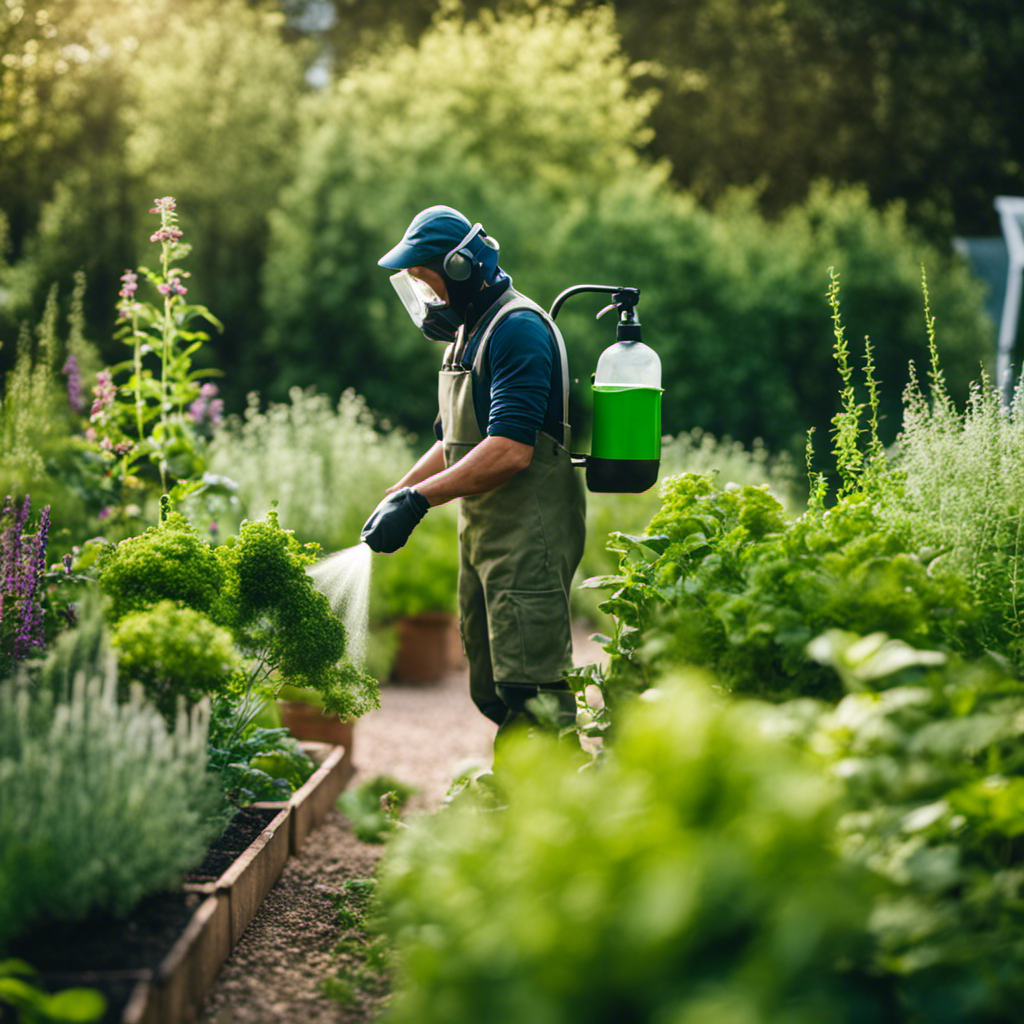
Protecting your herbs from pests can be achieved through the use of homemade insecticidal sprays. These natural alternatives not only safeguard your herbs but also have a minimal impact on the environment. By creating your own herbal remedies, you can rest assured that no harmful chemicals are being used on your precious plants.
Below are some simple recipes for homemade insecticidal sprays that you can easily prepare at home:
-
Garlic Spray: Crush 6-8 garlic cloves and mix them with water. Allow the mixture to sit overnight, then strain it and transfer it into a spray bottle. Apply the spray to your herbs, focusing on areas where pests are likely to appear.
-
Neem Oil Spray: In a spray bottle, mix 2 tablespoons of neem oil, 1 gallon of water, and 1 teaspoon of liquid soap. Shake the bottle well to ensure thorough mixing. Spray the solution on your herbs, ensuring both the top and bottom of the leaves are covered.
These homemade insecticidal sprays effectively control pests while also promoting the well-being of your herbs and the environment. By opting for natural pest control alternatives like these, you can maintain the health and vitality of your herbs without resorting to harmful chemicals.
Physical Barriers to Keep Pests Away From Herbs
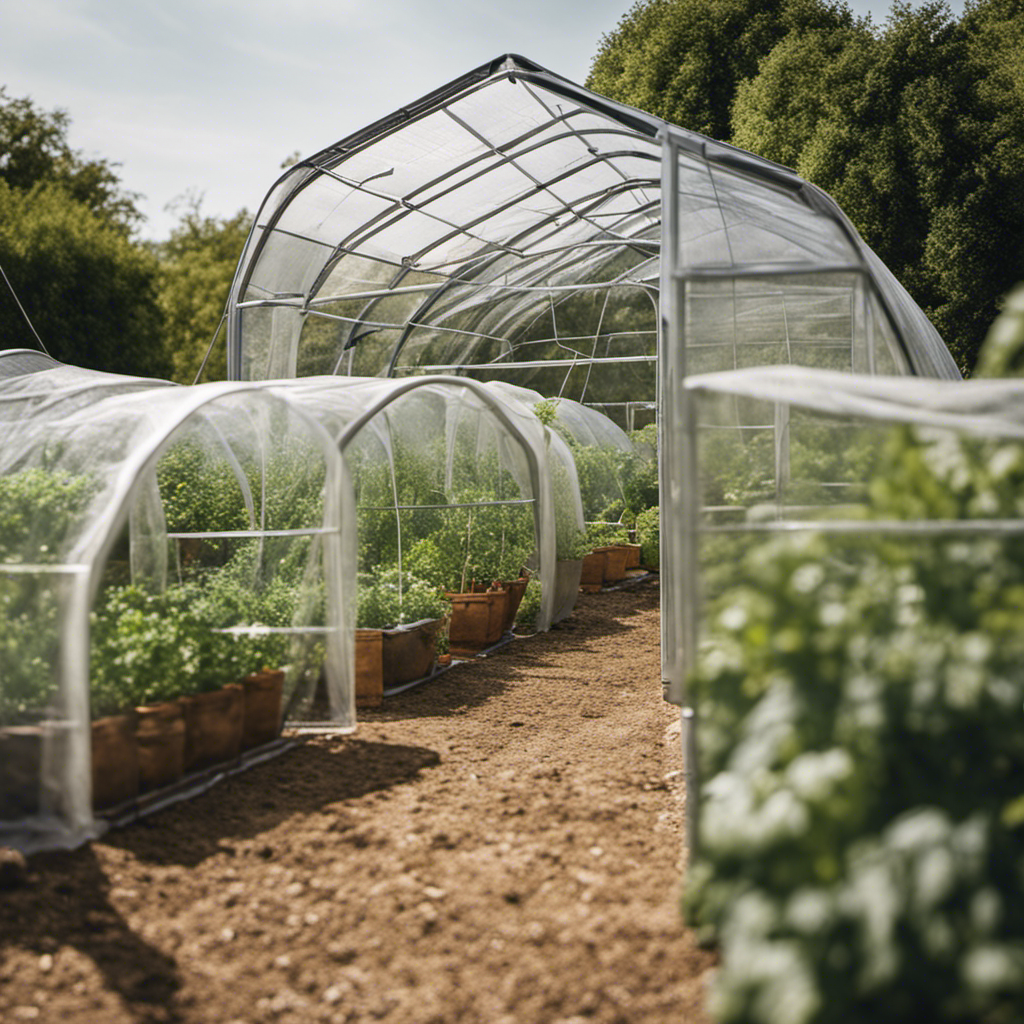
Protecting your herbs from pests is essential for maintaining a healthy garden. One effective method is to create physical barriers using mesh netting or floating row covers. These barriers not only keep insects and animals away from your herbs but also allow air and water to reach them, promoting their growth.
Here are three options for physical barriers to safeguard your herbs:
-
Mesh Netting: This fine mesh material acts as a shield against pests while still allowing sunlight and rain to penetrate. It works well for vertical gardening setups or raised beds.
-
Floating Row Covers: Lightweight fabric covers that can be placed directly over your herb plants. They provide protection from pests and create a favorable microclimate that aids in growth and moisture retention.
-
Chicken Wire Fencing: If you’re dealing with larger pests like rabbits or deer, consider installing chicken wire fencing around your herb garden. This will effectively keep these animals at bay.
Beneficial Insects as Natural Pest Predators
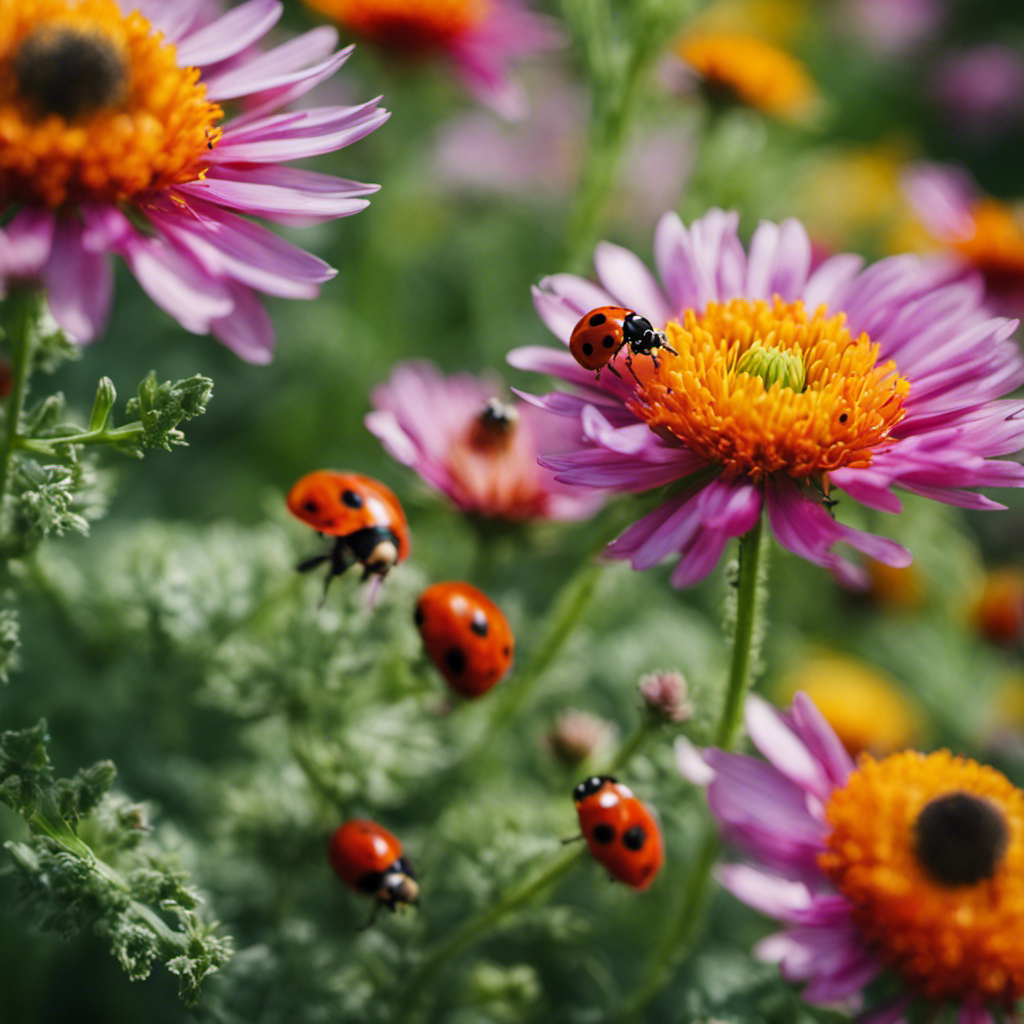
Harnessing the Power of Beneficial Insects for Natural Pest Control
To maintain a healthy and pest-free herb garden, it’s important to consider the role of beneficial insects as natural pest predators. These helpful creatures play a crucial part in biological control, eliminating the need for harmful chemicals. By attracting them to your garden, you can create a balanced ecosystem that naturally controls pests.
You can encourage beneficial insects to visit your herb garden by planting flowers that attract them, such as marigolds, daisies, and lavender. These flowers provide a food source of nectar and pollen for beneficial insects. Additionally, incorporating native plants and creating small areas with rocks or logs can provide shelter for these insects, allowing them to hide and rest when needed.
Here are some common beneficial insects and the pests they prey upon:
- Ladybugs: Prey upon aphids
- Lacewings: Prey upon mealybugs
- Hoverflies: Prey upon whiteflies
Utilizing the power of beneficial insects can significantly reduce the need for chemical pesticides in your herb garden. By providing the necessary resources to attract and support these helpful creatures, you’ll be well on your way to maintaining a thriving, pest-free garden. Remember, a healthy ecosystem is key to the success of your herbs.
Conclusion
In the world of gardening, effectively dealing with pests can be achieved by harnessing the power of nature.
By using essential oils, practicing companion planting, and making homemade sprays, we can protect our precious herbs from harm.
It’s also beneficial to create physical barriers and attract beneficial insects to help in the fight against pests.
By adopting these authentic pest control strategies, we can ensure that our herb garden thrives in health and abundance.
